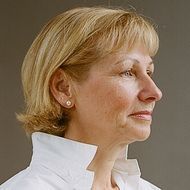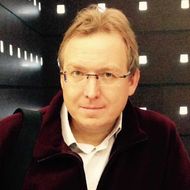- A
- A
- A
- ABC
- ABC
- ABC
- А
- А
- А
- А
- А
- HSE University
- Faculty of Geography and Geoinformation Technology
- News
- Scientists Talked About the Development of Organic Agriculture in Russia at the International United Congress in Italy
-
Faculty
-
Educational Programmes
Geography of Global Changes and Geoinformation Technology
Spatial Data and Applied Geoanalytics
Low Carbon Development
 Атлас изменений окружающей среды - Кыргызская Республика (Atlas of Environmental Change - Kyrgyz Republic)
Атлас изменений окружающей среды - Кыргызская Республика (Atlas of Environmental Change - Kyrgyz Republic)
Medvedev A., Alekseenko N., Kuramagomedov B. et al.
United Nations Environment Programme, 2025.
Geography and Natural Resources. 2025. No. 46. P. 97-104.
In bk.: Reference Module in Earth Systems and Environmental Sciences. Oxford: Elsevier, 2025. P. 1-11.
Колосов В. А., Zotova M.
Published online. 10.1080/14650045.2021.1952184. Taylor and Francis, 2021

Scientists Talked About the Development of Organic Agriculture in Russia at the International United Congress in Italy
.png)
Organic agriculture in Russia is a young industry that has been developing in our country for the last ten years and is currently represented by about 130 enterprises. In the report, the authors focused on the role that organic agriculture can potentially play in increasing the resilience of rural areas in Russia. The peculiarity of organic production is the complete rejection of synthetic fertilizers, feed, and pesticides in favor of organic fertilizers, crop rotation, and mechanical methods of weed control. This is a part of a broader movement to biologize agriculture to maximize the use of the natural potential for productivity and regeneration of natural landscapes, abandoning monocultures and reducing economic pressure on nature.
.png)
In addition to the obvious environmental impacts, organic farming has a number of positive socio-economic effects. As a rule, it comes to those areas from which industrial agriculture leaves due to less favorable natural and climatic conditions, remoteness from cities, and the urban labor market.
In Russia, one of the examples is the non-chernozem Yaroslavl region, where organic pasture animal husbandry is developing on abandoned collective farm fields. Thus, new jobs are created in remote rural areas and the traditional cultural landscape is preserved.
This research is part of the project of the Human Capital Multidisciplinary Research Center. The participation of the faculty teachers in the project contributes to the development of research areas of the faculty and opens up opportunities for collaboration and the implementation of joint projects in the future. The research results were also published in the 4th issue of the magazine "Regional Research of Russia" (December 2021).
Faculty members participate in international events, expanding knowledge about geography and the achievements of Russian scientists in the framework of HSE's research areas
- About
- About
- Key Figures & Facts
- Sustainability at HSE University
- Faculties & Departments
- International Partnerships
- Faculty & Staff
- HSE Buildings
- Public Enquiries
- Studies
- Admissions
- Programme Catalogue
- Undergraduate
- Graduate
- Exchange Programmes
- Summer Schools
- Semester in Moscow
- Business Internship
-
https://elearning.hse.ru/en/mooc/
Massive Open Online Courses
-
https://www.hse.ru/en/visual/
HSE Site for the Visually Impaired
-
http://5top100.com/
Russian Academic Excellence Project 5-100
- © HSE University 1993–2025 Contacts Copyright Privacy Policy Site Map
- Edit


